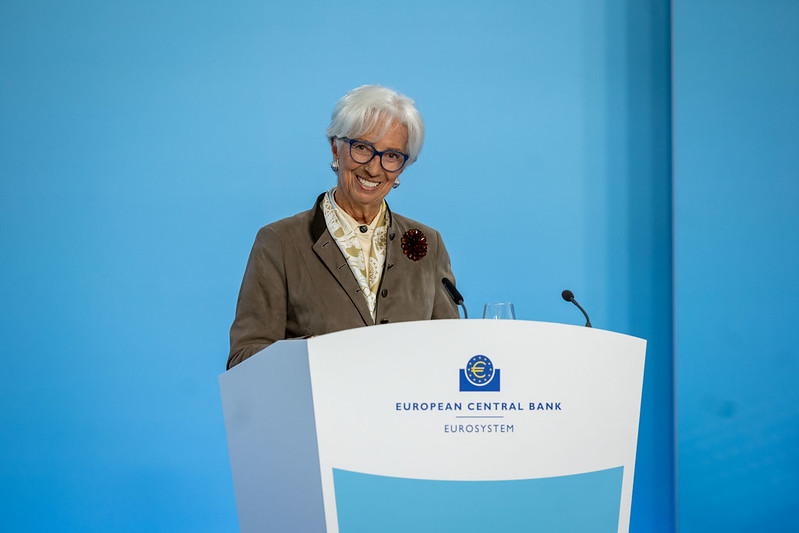ECB’s Lagarde: Disinflationary Process Is Over
6 October 2025

By David Barwick – FRANKFURT (Econostream) – European Central Bank President Christine Lagarde on Monday said that the euro area’s disinflationary phase had ended, with inflation around 2% and expected to remain near that level.
“With inflation currently at around 2% and expected to remain at around that level over the projection horizon, we can say that the disinflationary process is over,” she told the European Parliament’s Economic and Monetary Affairs Committee in Strasbourg, France.
Lagarde said that the Governing Council would continue to set policy on a data-dependent, meeting-by-meeting basis, “not pre-committing to a particular rate path.”
She noted that headline inflation edged up to 2.2% in September from 2.0% in the previous three months, mainly on higher energy. Core inflation held at 2.3%, and “indicators of underlying inflation remain consistent with our 2% medium-term target,” she said.
Nominal wage growth slowed to 3.9% in the second quarter from 4.8% a year earlier and is expected to moderate further, contributing to easing domestic price pressures, she said.
Lagarde said that the outlook for inflation remains “more uncertain than usual,” but that the range of risks on both sides has narrowed.
“Risks to economic growth have become more balanced,” she said, while warning that renewed trade tensions could again weigh on exports, investment and consumption.
Turning to the euro’s international role, Lagarde said that geopolitical shifts and policy uncertainty posed challenges and created opportunities. “There is a unique opportunity to create conditions to strengthen the euro’s role on the global stage,” she said.
She said Europe must “do its homework and strengthen its foundations,” including completing the Single Market, deepening capital markets and upholding the rule of law.
The ECB, she added, would continue to safeguard price and financial stability and support market and payments infrastructure, including swap and repo lines and work on digital and cross-border payments.
